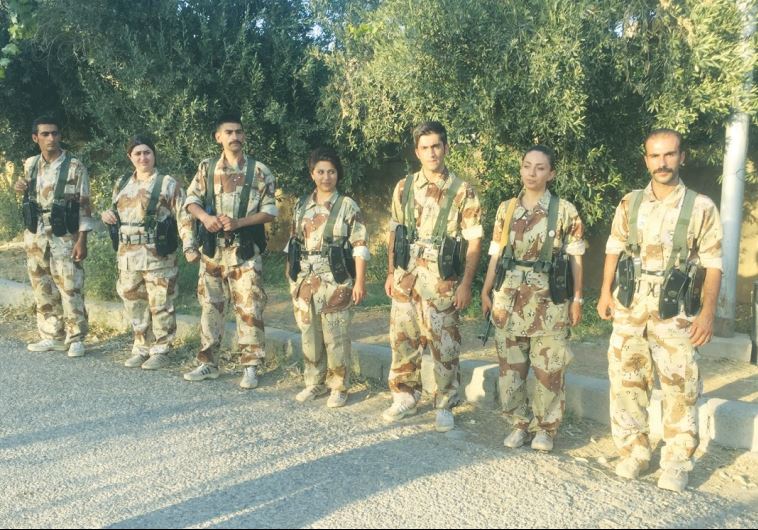Iranian Kurdish leader to ‘Post’: Iran regime is a common enemy
Kurds have recently stepped up attacks on Revolutionary Guards in demand for autonomy and democracy.
 KURDISH PDKI Peshmerga train to go to Iran to resist the regime.(photo credit: SETH J. FRANTZMAN)
KURDISH PDKI Peshmerga train to go to Iran to resist the regime.(photo credit: SETH J. FRANTZMAN)